AI-powered search & chat for Data / Computer Science Students
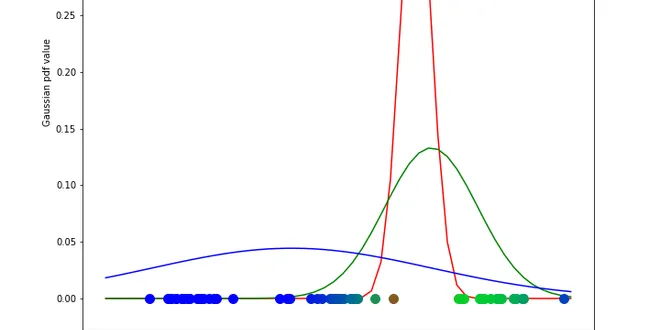
Gaussian Mixture Models(GMM)
Brief: Gaussian mixture models is a popular unsupervised learning algorithm. The GMM approach is similar to K-Means clustering algorithm, but is more robust and therefore useful due to…
Read more at Analytics Vidhya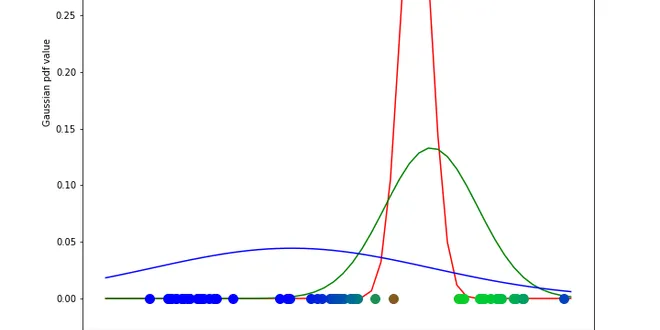
Gaussian Mixture Models(GMM)
Brief: Gaussian mixture models is a popular unsupervised learning algorithm. The GMM approach is similar to K-Means clustering algorithm, but is more robust and therefore useful due to…
Read more at Level Up Coding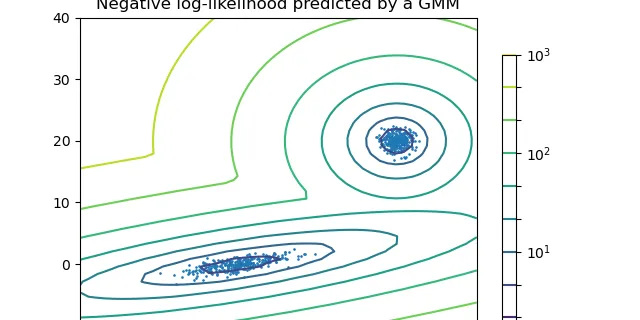
2.1. Gaussian mixture models
sklearn.mixture is a package which enables one to learn Gaussian Mixture Models (diagonal, spherical, tied and full covariance matrices supported), sample them, and estimate them from data. Facilit......
Read more at Scikit-learn User Guide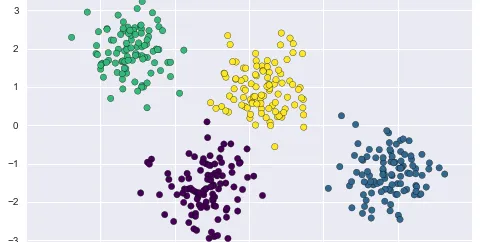
In Depth: Gaussian Mixture Models
The k -means clustering model explored in the previous section is simple and relatively easy to understand, but its simplicity leads to practical challenges in its application. In particular, the non-...
Read more at Python Data Science Handbook
Gaussian Mixture Modelling (GMM)
In a previous post, I discussed k-means clustering as a way of summarising text data. I also talked about some of the limitations of k-means and in what situations it may not be the most appropriate…
Read more at Towards Data Science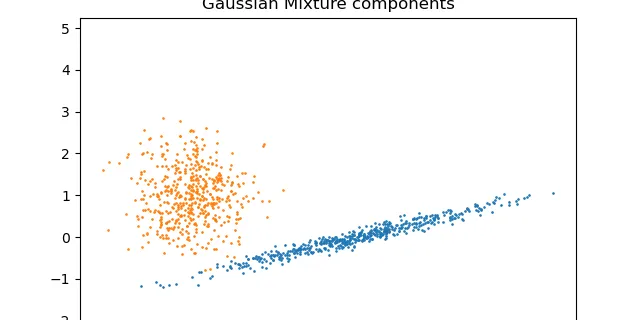
Gaussian Mixture Model Selection
Gaussian Mixture Model Selection This example shows that model selection can be performed with Gaussian Mixture Models using information-theoretic criteria (BIC) . Model selection concerns both the co...
Read more at Scikit-learn Examples
Gaussian Mixture Models for Clustering
Recently I was using K-Means in a project and decided to see what other options were out there for clustering algorithms. I always find it enjoyable to sink my teeth into expanding my data science…
Read more at Towards Data Science
Gaussian Mixture Models Explained
In the world of Machine Learning, we can distinguish two main areas: Supervised and unsupervised learning. The main difference between both lies in the nature of the data as well as the approaches…
Read more at Towards Data Science
A Simple Introduction to Gaussian Mixture Model (GMM)
A Gaussian distribution is what we also know as the Normal distribution. You know, that well spread concept of a bell shaped curve with the mean and median as central point. Given that, if we look at…...
Read more at Towards Data Science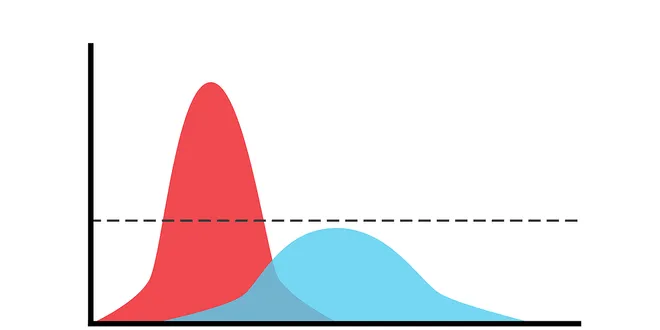
Gaussian Mixture Models (GMMs): from Theory to Implementation
Mixture Models A mixture model is a probability model for representing data that may arise from several different sources or categories, each of which is modeled by a separate probability distribution...
Read more at Towards Data Science
Gaussian Mixture Models: implemented from scratch
From the rising of the Machine Learning and Artificial Intelligence fields Probability Theory was a powerful tool, that allowed us to handle uncertainty in a lot of applications, from classification…
Read more at Towards Data Science
Sampling from Gaussian Mixture Models
When you are developing a clustering algorithm, you might need to quickly test the algorithm without wanting to use the actual data. In such cases, it is very helpful to be able to sample from a…
Read more at Analytics Vidhya
Demystifying Gaussian Mixture Models and Expectation Maximization
Explanation of Gaussian Mixture Models and its underlying algorithm of Expectation Maximization in a simplified manner
Read more at Towards Data Science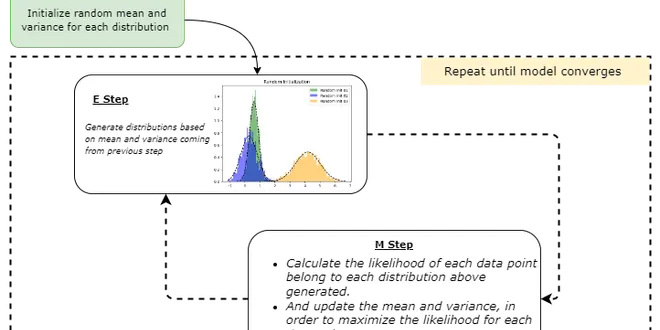
Gaussian Mixture Model Clearly Explained
The only guide you need to learn everything about GMM Photo by Planet Volumes on Unsplash When we talk about Gaussian Mixture Model (later, this will be denoted as GMM in this article), it's essentia...
Read more at Towards Data Science
3 Use-Cases for Gaussian Mixture Model (GMM)
Notice the parallels between multivariate distribution and GMM. In essence, the GMM algorithm finds the correct weight for each component is represented as a multivariate Gaussian distribution. In his...
Read more at Towards Data Science
Gaussian Mixture Models with Python
The Gaussian mixture model (GMM) is well-known as an unsupervised learning algorithm for clustering. Here, “Gaussian” means the Gaussian distribution, described by mean and variance; mixture means…
Read more at Towards Data Science
Gaussian Mixture Models and Expectation-Maximization (A full explanation)
In the previous article, we described the Bayesian framework for linear regression and how we can use latent variables to reduce model complexity. In this post, we will explain how latent variables…
Read more at Towards Data Science
The Gaussian Model
Disclaimer first: I’m not an epidemiologist. These are not professional projections; these are back-of-the-envelope calculations. I’m a physicist, and you know how we love our “orders of magnitude”…
Read more at Towards Data Science
tl;dr: Dirichlet Process Gaussian Mixture Models made easy.
A generative model is one that gives us observations. We can use a Bernoulli distribution model to generate coin flip observations. We can use a Poisson distribution model to simulate radioactive…
Read more at Towards Data Science
The Impact of Ordinal Scales on Gaussian Mixture Recovery
Gaussian Mixture Models (GMMs) and its special cases Latent Profile Analysis and k-Means are a popular and versatile tools for exploring heterogeneity in multivariate continuous data. However, they as...
Read more at R-bloggers
Gaussian Mixture Models Clustering Algorithm Explained
Gaussian mixture models can be used to cluster unlabeled data in much the same way as k-means. There are, however, a couple of advantages to using Gaussian mixture models over k-means. First and…
Read more at Towards Data Science
Variational Inference in Bayesian Multivariate Gaussian Mixture Model
Variational Inference(VI) is an approximate inference method in Bayesian statistics. Given a model, we often want to infer its posterior density, given the observations we have. However, an exact…
Read more at Towards Data Science
GMM: Gaussian Mixture Models — How to Successfully Use It to Cluster Your Data?
An intuitive explanation of GMMs with helpful Python examples
Read more at Towards Data Science
KMeans vs. Gaussian Mixture Models
Addressing the major limitation of KMeans.
Read more at Daily Dose of Data Science- «
- ‹
- …

